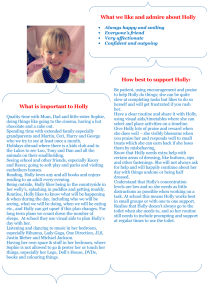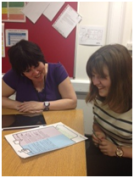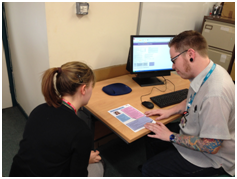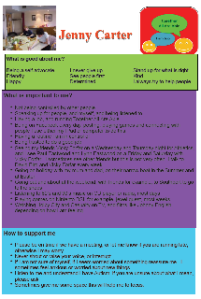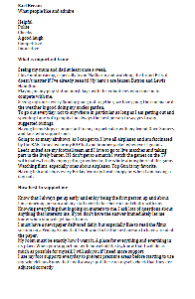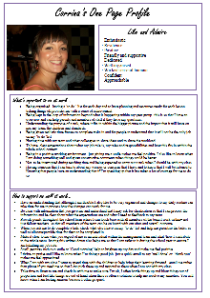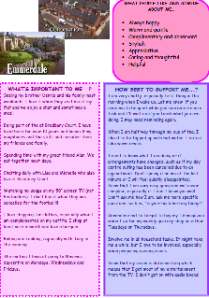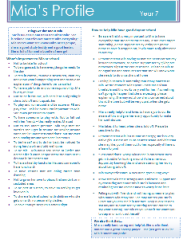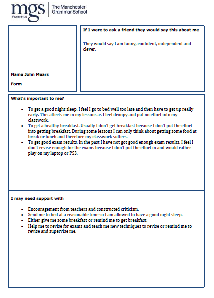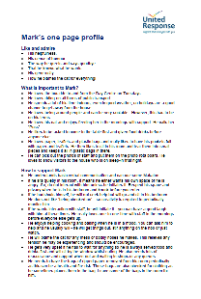This school introduced one-page profiles to all pupils in Alan’s year. The profiles helped pupils think about what was important to them and what support they needed, not just for academia but to achieve their wider ambitions. This is how one-page profiles and the activities around creating one-page profiles worked for Alan.
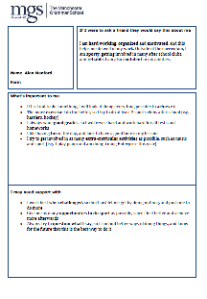
Alan’s one-page profile
Written by Manchester Grammar School
Alan is a Year 10 pupil at MGS. He is one of our top academic performers and is a tremendously talented young man. It was really interesting for us as a staff to see how someone in this bracket would respond to the activities of the one-page profile.
Whilst it is often the case that one-page profiles can help to solve problems, it is not immediately obvious that Alan has any. The hope was that through engaging with the one-page profile process, Alan would take the opportunity to reflect on the position that he is in and set himself some ambitious targets for the short and medium term. It would also be a chance for Alan to put in writing and discuss with his parents and tutor anything that he thought could be improved upon and the part that they might play in this.
Alan said of his one-page profile; ‘It gets people to think about their strengths weaknesses and what they could do to improve themselves. It made them think about what makes them tick and asks them to try to do certain things more often so that they have more good days.’
When talking about his own experience Alan said, ‘Personally I was using it to think about support I might need in subjects that weren’t quite going as well as the rest rather than things that were going badly wrong.’
This was interesting as it shows that even for a top performer the one-page profile could help to focus the pupil’s mind on subtle aspects of school life that might need attention. Alan placed a lot of value in the supplementary exercises that we did beyond the one-page profile. The first of these was an activity where he imagined that he had been sent to the future, first by five years and then by ten years, and wrote a letter to his current self, to explain what life is like there.
‘It made me realise that I haven’t decided what I want to do yet. It made me start to identify important decisions that are on the horizon and made me think about where I might be going in the future’ he said.
The next activity we asked Alan to do was to consider what was working at school and what wasn’t. At a parent – Form Tutor meeting these ideas were discussed and both parties made contributions to Alan’s ideas.
Of the general process Alan said, ‘Working/not working gives the important people in school an idea about how people are getting on. If you’ve written down serious things are not working then parents and teachers would act on it.’
Of his own experiences Alan said, ‘I was struggling with Islam in Religious Studies, especially exam preparation. This was discussed after working/not working and Form Tutor day. My Form Tutor spoke to my teacher about it and it has made a big difference.’
Having a one-page profile at school to think about his academic studies, his relationship with peers and teachers, his future and to identify what support he needs to achieve what he has outlined as important has been very helpful to Alan. It has given him another way to get his point across and helped him think about his school life and wider life with greater reflection.
One-page profile are being updated throughout the year and Alan is sharing a draft version


